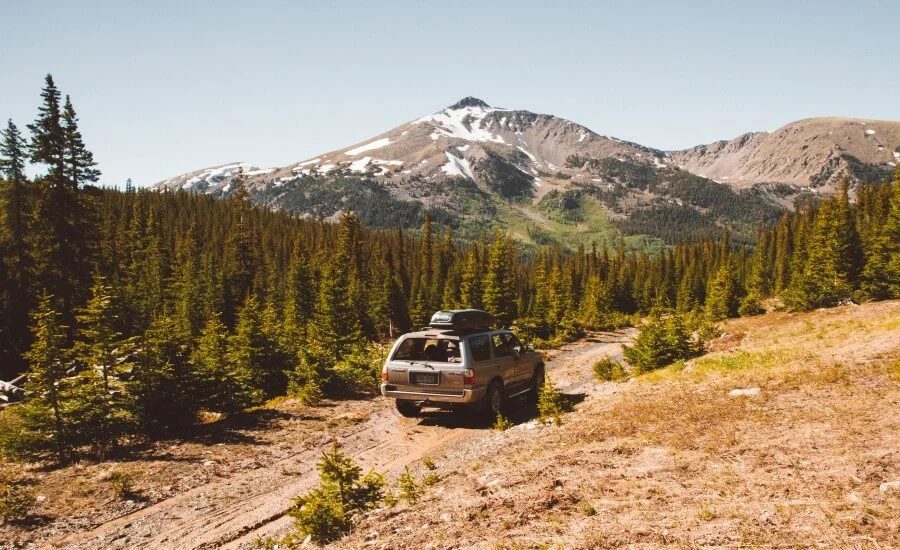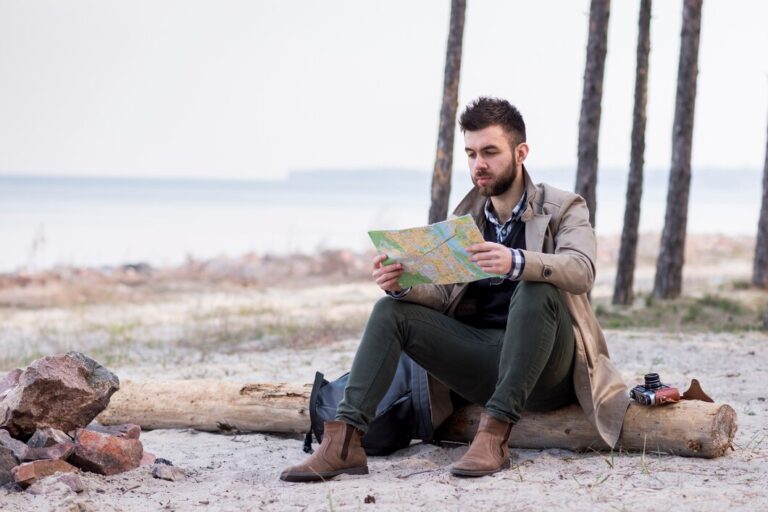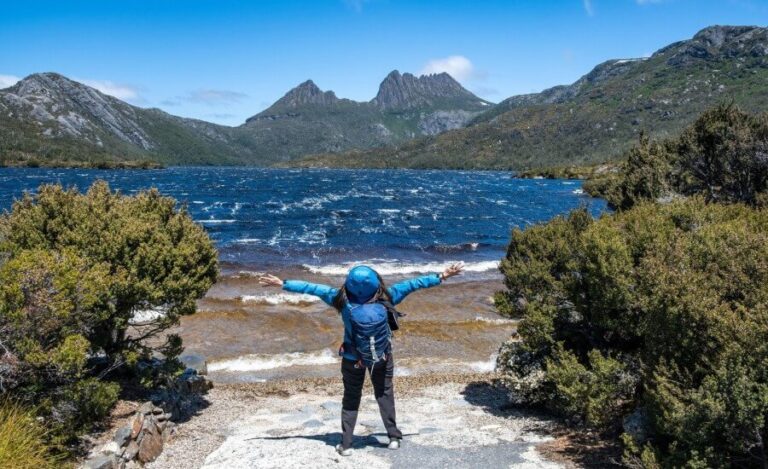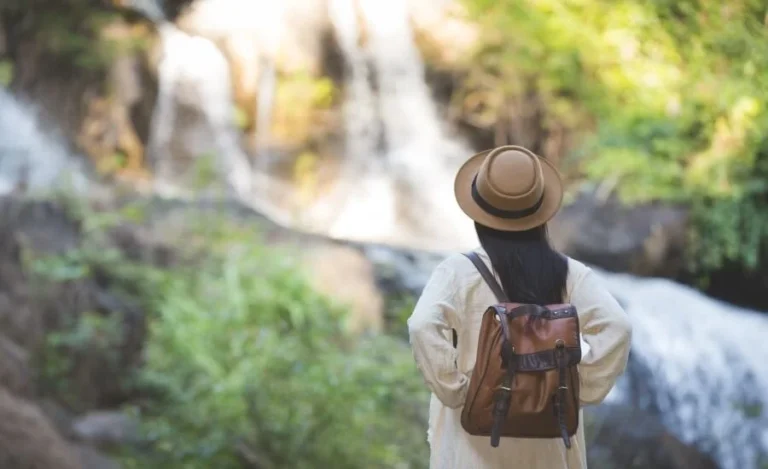
There’s a certain pull, a primal yearning, that whispers beyond the well-trodden tourist trails and manicured viewpoints. It’s the call of the open road turning into a dusty track, the desire to rely on your own skills and preparedness, the dream of waking up not to a hotel lobby, but to the vast silence of a remote landscape unfolding around your temporary home on wheels. This isn’t just a road trip; it’s overlanding – a journey where self-reliance, exploration, and the path itself become the true destination.
For those feeling disconnected by modern comforts or constrained by pre-packaged experiences, overlanding offers a profound way to reconnect – with nature, with basic skills, with travel partners, and ultimately, with oneself. It often involves venturing into areas where Wi-Fi signals fear to tread, naturally inviting a digital detox and a deeper immersion in the present moment.
This guide delves into Overlanding Adventures: Driving Through Uncharted Territories, exploring the philosophy behind this adventurous travel style, essential preparations, navigating the unknown, embracing mindful presence on the trail, and the unique freedom found in unplugged exploration, whether tackling the deserts of Gujarat or the high passes of the Himalayas.
What is Overlanding? The Journey is the Destination

Overlanding is more than just driving long distances or car camping. At its core, it’s self-reliant overland travel to remote destinations where the journey is the principal goal. Key elements define this travel philosophy:
- Self-Reliance: Overlanders aim to be self-sufficient, carrying their own shelter, food, water, fuel, vehicle recovery gear, and tools necessary to handle challenges encountered along the way.
- Exploration & Journey Focused: While destinations matter, the emphasis is heavily on the experience of traveling through diverse, often remote or challenging terrains. The route finding, problem-solving, and discoveries made en route are integral parts of the adventure.
- Vehicle-Dependent: The mode of transport is typically a mechanically capable vehicle (often a 4×4, SUV, or appropriately equipped truck or motorcycle) prepared for varied terrain and serving as a base for transport, living, and storage.
- Remote Locations: Overlanding often involves venturing off paved roads into wilderness areas, deserts, mountains, or less-traveled regions far from typical tourist infrastructure.
- Camping as Primary Lodging: Utilizing vehicle-based camping (rooftop tents, ground tents, vehicle interiors) or basic wild camping is standard practice, allowing access to remote areas without relying on hotels.
- Extended Duration & Boundaries: Journeys can range from a weekend trip to multi-year expeditions, often crossing regional or international borders.
Overlanding is a mindset rooted in adventure, preparedness, and a desire to experience the world directly and independently.
Gearing Up for the Uncharted: Vehicle Choice & Essential Kit

Success and safety in overlanding heavily depend on preparation, starting with your vehicle and essential gear. While any reliable vehicle can handle mild overlanding on maintained tracks, venturing into truly uncharted or challenging territories often requires more.
Vehicle Considerations:
- Capability: A vehicle with good ground clearance, robust suspension, and often 4-wheel drive (4×4) or All-Wheel Drive (AWD) is recommended for rougher terrain. Reliability is paramount.
- Tires: All-terrain (AT) or mud-terrain (MT) tires with strong sidewalls are crucial. Always carry a full-size spare tire and the tools/knowledge to change it. A tire repair kit and portable air compressor are essential.
- Maintenance: Ensure your vehicle is meticulously maintained before departure – check fluids, brakes, battery, belts, hoses. Basic mechanical knowledge is invaluable.
- Storage & Organization: Efficient storage solutions (roof racks, drawer systems, storage boxes) are needed to carry gear securely and accessibly. Consider payload capacity and weight distribution.
Essential Gear Categories:
- Recovery Gear: For getting unstuck. Includes traction boards, a sturdy shovel, rated recovery points on the vehicle, snatch strap/kinetic rope, shackles, and potentially a winch (especially for solo or very remote travel). Crucially, you know how to use this gear safely!
- Navigation: See next section. Essential!
- Communication: For remote areas without cell signal: Satellite messenger (Garmin inReach, SPOT) or satellite phone for emergencies. Handheld GMRS/FRS or HAM radios for vehicle-to-vehicle communication in groups.
- Safety & First Aid: Comprehensive first-aid kit (tailored to remote travel), fire extinguisher, basic survival kit, knowledge of wilderness first aid.
- Camping Shelter: Rooftop tent, ground tent, awning, or vehicle interior setup.
- Sleeping Gear: Sleeping bags/quilts rated for expected temperatures, sleeping pads/mattress.
- Cooking & Water: Portable stove, fuel, pots/pans, utensils, cooler/fridge, sufficient water storage, water filter/purification method.
- Tools & Spares: Basic vehicle tool kit, spare fluids, fuses, duct tape, zip ties, etc. Tailor spares to your vehicle’s known weak points.
Key Point: Start with essentials and build up. You don’t need everything for your first trip. Prioritize safety, recovery, navigation, and basic camping needs.
Navigating Beyond the Paved Path: Maps, Tech & Intuition

Finding your way through remote areas, especially where roads are unpaved or unmarked, requires reliable navigation tools and skills. Relying solely on standard phone apps is often impossible due to lack of signal.
- Foundation: Paper Maps & Compass: These are non-negotiable backups. Learn basic map reading (topographic maps are essential for understanding terrain) and compass skills. Carry detailed paper maps of the areas you plan to explore.
- Offline Digital Maps: GPS technology is incredibly useful, but ensures your chosen device/app works offline.
- Dedicated GPS Devices: Units from Garmin or similar often have robust off-road capabilities.
- Smartphone/Tablet Apps: Apps like Gaia GPS, onX Offroad, Hema Maps (popular in Australia), Maps.me, or even Google Maps allow downloading detailed maps for offline use. Choose strong apps in your travel region (e.g., specific apps might be better for routes in India vs. Europe). Ensure your device has a true GPS receiver, not just relying on cell towers.
- Dedicated GPS Devices: Units from Garmin or similar often have robust off-road capabilities.
- Practice & Familiarity: Learn to use your chosen navigation system (digital and analog) before your trip in familiar areas. Test offline map functionality.
- Layering Information: Combine information from paper maps, digital maps, guidebooks (if available), and satellite imagery to get the best understanding of your route and potential challenges.
- Observation & Intuition: Pay attention to your surroundings! Notice landmarks, track conditions, sun position, weather changes. Develop your sense of direction and intuition – sometimes the ‘feel’ of the track is as important as the map.
Redundancy is key. Have multiple navigation methods available and know how to use them all.
Life on the Trail: Remote Camping, Simple Living & Daily Rhythms

Overlanding often involves camping in remote locations far from established campgrounds. This requires adapting to a simpler rhythm and managing resources carefully.
- Finding Campsites: Research potential areas beforehand (public lands, designated dispersed camping areas, checking regulations). Look for flat, durable surfaces away from water sources (Leave No Trace principle) and potential hazards (flash flood zones, unstable trees). Aim for minimal environmental impact. Consider safety and privacy.
- Setting Up Camp: Develop an efficient routine for setting up your shelter (tent, awning), kitchen area, and sleeping arrangements. Practice makes perfect.
- Camp Cooking: Embrace simple, hearty meals cooked on a portable stove or campfire (where permitted and safe). Plan meals that require minimal perishable ingredients or utilize a portable fridge/cooler. Efficient water use is key.
- Resource Management: Carefully monitor water levels, fuel consumption (vehicle and cooking), and food supplies. Plan resupply points along your route. Understand basic water filtration/purification methods.
- Waste Management: Pack it in, pack it out. ALL trash, including organic waste like food scraps and toilet paper, must be carried out. Follow Leave No Trace principles for human waste disposal (catholes or portable toilets).
- Daily Rhythms: Life on the trail often falls into a natural rhythm: waking with the sun, packing up camp, driving/exploring, finding a spot before dusk, setting up camp, cooking, enjoying the evening, sleeping under the stars. Embrace this simpler flow.
Living simply and self-sufficiently on the trail fosters resourcefulness and a deep appreciation for basic comforts.
Mindful Miles: Cultivating Presence on Your Overland Journey

The very nature of overlanding, with its focus on the journey and often slower pace through engaging landscapes, provides fertile ground for mindfulness practice.
- Mindful Driving: While safety demands attention, you can still practice presence. Notice the feel of the vehicle on the track, the changing light on the landscape, the details of the terrain passing by. Avoid purely destination-focused thinking; appreciate the process of driving and navigating.
- Sensory Immersion Stops: Intentionally pause during the day not just for necessities, but purely to absorb your surroundings. Step out of the vehicle. Engage all your senses: What do you see, hear, smell, feel (wind, sun)?
- Appreciating Simplicity: Find joy in simple tasks done mindfully – setting up the tent, brewing coffee in the morning, washing dishes outdoors. Notice the satisfaction in self-sufficiency.
- Observing Nature: Pay close attention to the details of the natural world you’re traveling through – animal tracks, plant life, geological formations, weather patterns. Use a field guide (physical book!) to learn more.
- Mindful Breaks: Incorporate short periods of formal mindfulness practice if you wish – a few minutes of focusing on your breath at a scenic overlook, a body scan meditation before sleep in your tent.
- Journaling the Journey: Document not just the places, but your thoughts, feelings, challenges, and observations along the way. This deepens reflection and creates a rich personal record.
Overlanding, approached mindfully, becomes more than just an adventure; it’s a practice in presence, observation, and connection with the world unfolding around you.
Unplugged Exploration: The Freedom of Off-Grid Overlanding

One of the defining characteristics – and often greatest rewards – of overlanding into uncharted territories is the inevitable disconnection from constant digital connectivity. Many remote areas simply lack reliable mobile signal or Wi-Fi, forcing an unplugged experience.
Benefits of Forced Disconnection:
- Deepened Immersion: Without the constant distraction of notifications, social media, and news feeds, your attention naturally turns outward to your surroundings and inward to your own experience. You become fully present in the journey.
- Enhanced Problem-Solving: When you can’t instantly Google a solution to a mechanical issue or navigation query, you rely on your own knowledge, skills, tools, maps, and ingenuity, fostering self-reliance and confidence.
- Stronger Connections (Interpersonal): Without devices mediating interactions, conversations with travel partners become more focused and meaningful. Shared challenges and experiences forge strong bonds.
- True Relaxation & Mental Reset: Escaping the digital noise allows the mind to genuinely rest and de-stress. Being off-grid provides a true break from work pressures and societal demands.
- Rediscovery of Analog Skills: You rediscover the value and satisfaction of using physical maps, a compass, reading a paper book, or simply observing the environment for cues.
- Greater Appreciation for Connection (When Regained): Periods of disconnection often lead to a greater appreciation for both technology (when used intentionally) and genuine human connection upon return.
Embracing the lack of signal isn’t a drawback; it’s often where the deepest magic and growth of an overlanding adventure lie. It’s true freedom from the digital tether.
Overlanding Adventures: Driving Through Uncharted Territories

Embarking on Overlanding Adventures: Driving Through Uncharted Territories is a call to a different kind of travel. It’s a commitment to self-reliance, a celebration of the journey itself, and an embrace of exploration beyond the familiar.
It demands preparation – a capable vehicle, essential gear, navigation skills, and a mindset ready for challenges. But the rewards are immense: unparalleled freedom, deep connection with nature, personal growth through problem-solving, and the unforgettable experience of traversing landscapes few others see.
Whether plotting a route through the remote deserts of Gujarat’s Rann of Kutch, navigating the high-altitude passes of Ladakh or Spiti in the Indian Himalayas, exploring the vastness of the Australian Outback, or tackling trails closer to home, the spirit remains the same.
It’s about mindful presence on the road, appreciating the simplicity of camp life, respecting the environments you pass through (Leave No Trace is paramount), and finding freedom in the unplugged moments where the only signals are those from nature itself. Overlanding isn’t just about where you go; it’s about how you travel and who you become along the way.
Common Concerns & Solutions for Aspiring Overlanders

Venturing into self-reliant travel naturally brings concerns.
Concern 1: “Isn’t overlanding incredibly expensive? (Vehicle, gear)”
- Solution: It can be, but doesn’t have to be. Start with the reliable vehicle you have and stick to less demanding routes. Prioritize essential safety/recovery gear first. Use existing camping gear. Buy used gear. Build skills gradually; you don’t need a fully kitted expedition rig for weekend trips on forest roads. Focus on experiences over expensive gadgets. Renting an equipped vehicle is also an option initially.
Concern 2: “What about safety and security in remote areas?”
- Solution: Research destinations thoroughly. Travel with others if possible, especially initially. Inform someone of your detailed route and schedule. Carry reliable communication (satellite messenger for emergencies). Be aware of your surroundings, camp discreetly if wild camping, secure your vehicle. Learn basic self-defense/awareness skills. Trust your intuition.
Concern 3: “I’m worried about vehicle breakdowns far from help.”
- Solution: Thorough vehicle preparation and maintenance before the trip is key. Learn basic field repair skills relevant to your vehicle (changing tire, checking fluids, fixing minor issues). Carry essential tools and appropriate spare parts. Have a plan for self-recovery (winch, traction boards) or communication to summon help. Travel with another vehicle for backup.
Concern 4: “I’ll get lost without reliable cell signal/Google Maps!”
- Solution: Develop offline navigation skills. Learn to use paper maps and a compass. Invest in a dedicated offline GPS device or app (Gaia GPS, onX Offroad, etc.) and download maps before you leave signal range. Practice using these tools. Always have redundant systems.
Concern 5: “What about the environmental impact of driving off-road?”
- Solution: Practice responsible overlanding. Strictly adhere to Leave No Trace principles. Stay on designated trails and roads – never create new tracks. Avoid sensitive areas (meadows, cryptobiotic soil). Pack out ALL trash. Dispose of human waste properly (far from water). Minimize campfire impact (use existing rings, ensure fully extinguished). Travel respectfully through local communities.
Overlanding Expedition Prep Checklist

Ensure you’re ready for self-reliant adventure with this checklist:
- Route Planning: Detailed route mapped (digital offline & paper maps). Resupply points (fuel, water, food) identified. Potential campsites researched. Land permissions/regulations checked.
- Vehicle Readiness: Thorough mechanical check (fluids, brakes, tires, suspension, battery). Full fuel tank(s). All lights working. Securely packed/lashed gear within payload limits.
- Navigation Kit: Paper maps, compass, primary offline GPS device/app (maps downloaded!), backup GPS/app (optional). Know how to use them!
- Communication: Charged phone (for areas with signal). Satellite messenger/phone (charged, subscription active) for remote areas. Backup power bank/charger.
- Recovery Gear: Rated recovery points, snatch strap/kinetic rope, shackles, sturdy shovel, traction boards. Winch (optional, know how to use safely). Tire repair kit & air compressor. Jack capable for your vehicle/lift.
- Safety & First Aid: Comprehensive first-aid kit (know how to use it!). Fire extinguisher. Basic survival kit (fire starter, emergency shelter, signaling device). Insect repellent, sunscreen.
- Camping Essentials: Shelter (tent/RTT), sleeping bag/pad (appropriate temp rating), camp chairs/table.
- Cooking & Water: Stove, fuel, pots/pans, utensils, cooler/fridge, sufficient water + purification/filter system. Enough food (+ emergency rations).
- Tools & Spares: Vehicle-specific tool kit, essential spares (fuses, belts, fluids), duct tape, zip ties, work gloves.
- Personal: Appropriate layered clothing, sturdy footwear, toiletries (biodegradable soap), medications. Headlamp/flashlight + spare batteries.
- Leave No Trace: Trash bags, trowel/portable toilet system.
- Documents: License, registration, insurance, permits, emergency contact info.
- Inform Someone: Share your detailed itinerary and check-in schedule with a reliable contact back home.
Answer the Call of the Uncharted Road

There’s a unique freedom found on the roads less traveled, a deep satisfaction in navigating landscapes under your own power and preparedness.
Overlanding adventures in uncharted territories offer more than just a vacation; they provide a powerful opportunity for self-discovery, resilience building, and forging an intimate connection with the planet far from the curated ease of mainstream travel. It’s a call back to exploration, resourcefulness, and the simple, profound beauty of the natural world.
By embracing the philosophy of self-reliance, preparing diligently, honing navigation skills (both analog and digital offline), practicing mindful presence along the way, and welcoming the opportunity to disconnect, you can unlock experiences that are both challenging and deeply restorative.
Whether charting a course through the vast landscapes of India, from the deserts near Vadodara to the Himalayan peaks, or exploring closer to home, the principles remain. Respect the land, trust your skills, embrace the journey, and answer the call of the uncharted road. Adventure awaits those willing to drive a little further, prepare a little more, and look a little deeper.
Tech-Free Activity Guide (Mindful Overlanding Moments)

Cultivate presence and connection during your overlanding journey with these tech-free activities:
- Mindful Camp Setup/Breakdown: Approach the routine tasks of setting up and taking down your camp as a mindful practice. Notice the movements, the sounds of the gear, the changing light. Work deliberately and appreciate the efficiency of your temporary home.
- Sensory Sit Spot: Each day, find a spot near your campsite or during a driving break. Sit quietly for 10-15 minutes and simply observe using all senses. What do you see (near and far)? Hear (subtle sounds)? Smell? Feel (temperature, breeze, ground)? Let the landscape imprint itself on you.
- Campfire Gazing Meditation: If conditions permit a safe campfire, spend time simply watching the flames dance. Notice the colors, the movement, the warmth, the crackling sounds. Let it be a focus point for quiet contemplation.
- Analog Journey Log: Keep a paper journal. Log daily mileage, route details, weather conditions, wildlife sightings, fuel/water usage, but also include personal reflections, observations, challenges overcome, and moments of gratitude.
- Nature Observation & Identification: Bring physical field guides (birds, plants, geology) relevant to your region. Spend time trying to identify what you see during walks or from camp. Sketching finds can deepen observation.
- Mindful Meal Preparation & Eating: Pay full attention when cooking outdoors. Notice the process, the smells, the sounds. Eat your meal slowly, savoring the flavors and appreciating the nourishment, especially if it’s simple fare cooked in a beautiful setting.
- Remote Stargazing: Overlanding often takes you to incredibly dark skies. Dedicate time after dark (let eyes adapt!) to simply lie back and look up. Use a paper star chart to identify constellations or just absorb the immensity (See “Hidden Stargazing Hotspots” post).
- Vehicle Check Ritual: Turn routine vehicle checks (tire pressure, fluid levels) into a mindful practice. Pay close attention to each step, appreciating the machine that enables your journey and ensuring its readiness.






